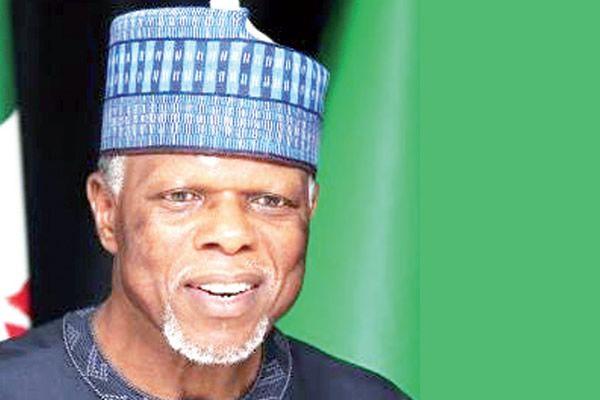News
Customs boss urges journalists to consider national interest in reportage

The Comptroller-General of Nigeria Customs Service (NCS), Retired Col. Hameed Ibrahim Ali, has urged journalists to consider national interest and economic stability of the country in their reportage.
He made the appeal on Monday, at the 2020 Nigeria Customs Service Seminar for Customs Correspondents in Lagos, with the theme “Enhancing National Economy and Security Through Responsible Reportage.”
Ali, represented by Assistant Comptroller General, Mrs Kaycee Ekekieze, Zonal Coordinator Zone A, said that responsible reportage could not be overemphasised at this time of the nation’s fragile economy.
He said that this was more so in the face of security challenges, not just in Nigeria, but all over the world.
The comptroller-general said that the Nigerian economy had a lot to do with importation and the need for the country to be self reliant.
According to him, such situation requires knowledge, tact and patriotism in reporting.
He said that if it was right with customs, it would go a long way to be right for Nigeria.
“The training was approved because we appreciate the role of journalists in disseminating information and it is also a means of helping them disseminate appropriately,” he said.
Mr Yomi Badejo-Okunsanya, President, African Public Relations Association (APRA) while presenting the keynote speech, said that journalists are responsible to the public with their reportage.
Badejo-Okunsanya, who is also the Group Managing Director, CMC Connect Ltd., said that even though the journalist writes for a medium or an organisation, the public is the ultimate paymaster as regards responsible reportage.
“Public relation is a potent management tool for everyone that is in a position of leadership; it should not be treated with lip service, it should be brought in at the very beginning.
“Customs activities have to do with securing nation’s borders, trade facilitation and its function is critical that available information around them is vital, so the need for objective reportage.
“The objective of this seminar is to identify the key facts that propel the reportage of the Nigerian environment, bearing in mind its security perspective in an effective way,” he said.
He said that there were shortcomings on both ends — the journalist and the organisation — and that it behoves the journalist to do indepth reports on what transpired.
Badejo-Okunsanya listed some of the challenges limiting the journalist as unavailability of data, dearth of modern day media reporting tools, lack of incentive, remuneration, public trust, corruption and others.
He urged journalists to see beyond the challenges and commit themselves in reporting responsibly, bearing in mind to factor certain principles in their writing.
Badejo-Okunsanya listed some of such principles as accuracy, brevity, clarity, balance, coherence and proximity.
Comptroller Wale Adeniyi of the Murtala Muhammed International Airport Command urged journalists to always follow-up after reporting.
According to him, after the cloud attributed to reporting breaking news, there is need for indepth information to get the news behind the news.
Earlier, Mr Joseph Attah, National Public Relations Officer, Nigeria Customs Service, said that any narrative dished out that was inaccurate would adversely affect the public and nation at large.
“This seminar promises next level advancement aimed at sharpening the knowledge of media people who report customs activities.
“Nigerian Customs is driven by integrity and takes bold decision, and the reason why the journalists need to get the right knowledge and information to impact to the public,” he said.




 Davido's Net Worth & Lifestyle
Davido's Net Worth & Lifestyle 
